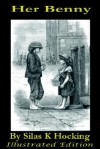Currently reading
The Lonely Sea: Collected Short Stories
Her Benny
Vedere din Parfumerie
Mysticism and Logic (Western Philosophy)
The Analects of Confucious
Pragmatism: A New Name for Some Old Ways of Thinking
Does Anything Eat Wasps?: And 101 Other Unsettling, Witty Answers to Questions You Never Thought You Wanted to Ask
Mutual Aid
City of Djinns: A Year in Delhi
The Brothers Karamazov
One Flew Over the Cuckoo's Nest
 Surprisingly more anti-establishment than the movie. Ken Kesey's original screenplay for the movie wasn't accepted for some reason. Yet still I remember the movie fondly, as a character study you might say, more than a sociological statement.
Surprisingly more anti-establishment than the movie. Ken Kesey's original screenplay for the movie wasn't accepted for some reason. Yet still I remember the movie fondly, as a character study you might say, more than a sociological statement.I met Ken Kesey not long before he died. Someone gave me a lottery ticket for the book-signing queue. His last book was a children's book about bears I think. I bought "Sometimes a Great Notion" to be signed, which is the closest to an autobiographical work he may have written, about bluff brothers in the Pacific Northwest. He looked at it a long time with a kind of half-satisfied regret. He was signing every book with coloured rubber stamps. He wasn't taking requests. But he was also engaged with real excitement in discussions with a 30-something man who was pitching newsletters on some esoteric topic.
After reading Kesey's essays in Demon Box and researching the story about the young mother he and his Magic Bus abandoned, naked and strung out, either emotionally or on drugs, at Larry Mcmurty's house, I do wonder if Ken Kesey was always one of the privileged baby boomers from far out west, who had a fling with life on the edge and built a paper cage for it, the only establishment house he thought it deserved, at least, in later essays. Cuckoos, you know, aren't well-known for building their own nests.













